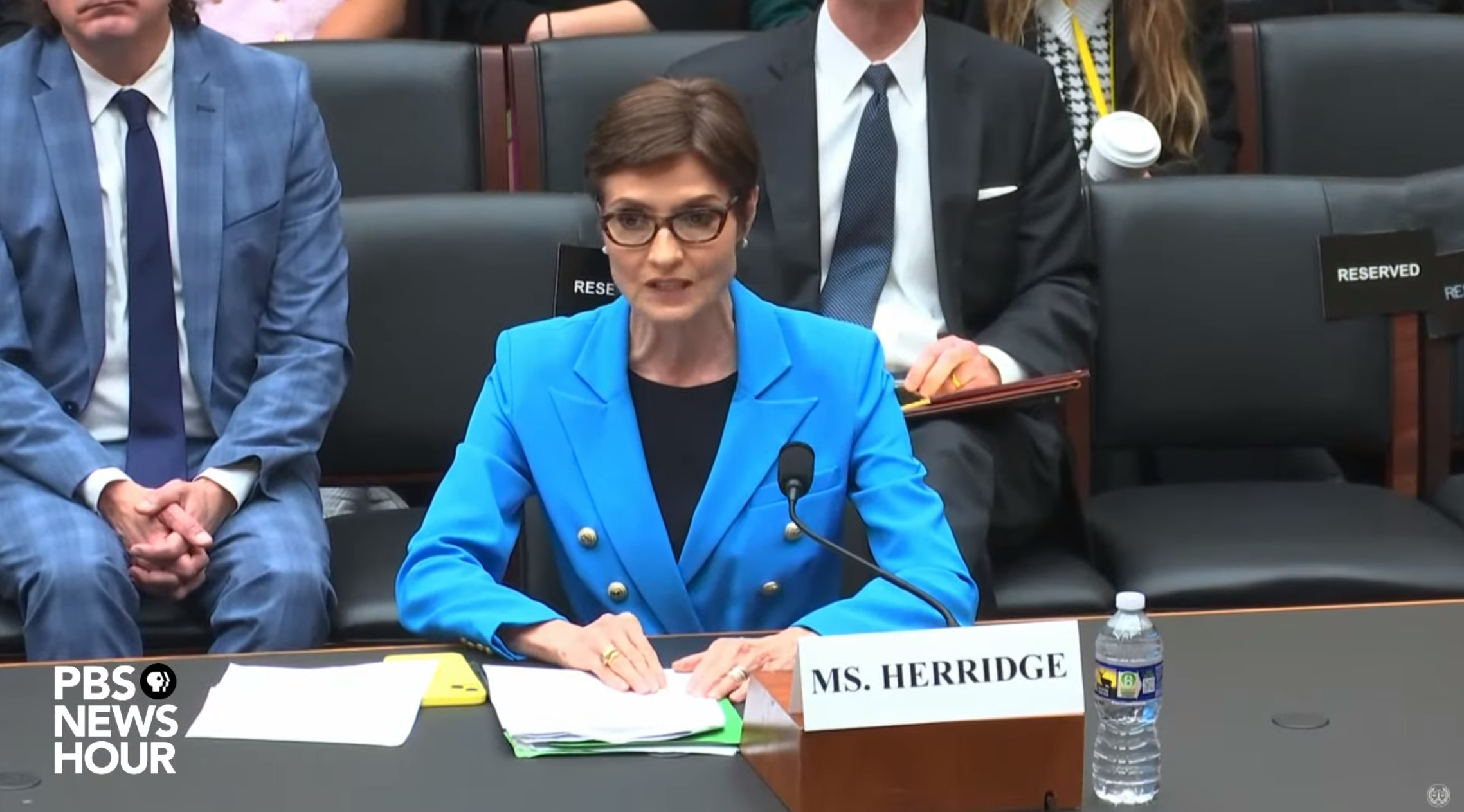‘Journalistic Rape’: Catherine Herridge Accuses CBS News of Crossing a ‘Red Line’ During House Hearing


Catherine Herridge, the veteran CBS News investigative journalist, testified before a House Judiciary subcommittee on Thursday as part of a hearing on press freedoms and the need to make the Press Act law.
Earlier this year, Herridge was both held in contempt of court by a civil judge for refusing to reveal her sources as part of a defamation lawsuit and she was laid off from CBS News during a round of cutbacks. U.S. District Judge Christopher Cooper imposed a fine of $800 per day until Herridge reveals her sources in the government that tipped her off to an investigation into a Chinese-American scientist, who is now suing for damages.
“As you know, in February, I was held in contempt of court for refusing to disclose my confidential sources on a national security story. I think my current situation can help put the importance of the Press Act into context. One of our children recently asked me if I would go to jail, if we would lose our house, and if we would lose our family savings,” Herridge said in her opening statement.
She went on to rail against CBS News for how the outlet handled her termination:
When I was laid off in February, an incident reinforced in my mind the importance of protecting confidential sources. CBS News locked me out of the building and seized hundreds of pages of my reporting files, including confidential source information. Multiple sources said they were concerned that by working with me to expose government corruption and misconduct, they would be identified and exposed. I pushed back and with the public support of my union, SAG-AFTRA, the records were returned.
CBS News has publicly denied seizing Herridge’s files, saying in a previous statement, “Contrary to several false press reports, absolutely none of Ms. Herridge’s files were ‘seized.’ Rather, CBS acted to secure and protect the material in Ms. Herridge’s office.”
“CBS News’s decision to seize my reporting records crossed a red line that I believe should never be crossed again by any media organization in the future,” she continued, adding:
The litigation and being held in contempt have taken a toll on me and my career. This is not a battle you can fight alone. I am grateful for the support of fellow journalists and multiple First Amendment organizations, including the Reporters Committee for Press Freedom, the Freedom of the Press Foundation, the Coalition for Women in Journalism, the Knight First Amendment Institute, the Society of Professional Journalists, as well as the Columbia Journalism School, of which I am a graduate.
Later during the hearing, Herridge described CBS’s actions in even more stark terms, saying, “When the network of Walter Cronkite seizes your reporting files including confidential information that is an attack on investigative journalism.”
“When my records were seized, I felt it was a journalistic rape,” she added.
Herridge also discussed whether or not her termination was related to her being held in contempt of court, she said that “there was tension over the Hunter Biden reporting and the Biden reporting but I can’t say for sure why I was let go.”
Much of Herridge’s remarks pressed for the passage of the Press Act, which would give journalists federal shield protections from revealing sources:
My current situation arises from a Privacy Act lawsuit. I am only a witness in the case. It is not common for these cases to reach the stage of holding a reporter in contempt. But when such cases happen, they have profound consequences impacting every journalist in the United States.
Forcing a reporter to disclose confidential sources would have a crippling effect on investigative journalism, because without reliable assurances of confidentiality, sources will not come forward. The First Amendment provides protections for the press because an informed electorate is at the foundation of our democracy. If federal sources are not protected, I fear investigative journalism is dead. Each day I feel the weight of that responsibility. As you know, I was held in contempt of court for upholding the basic journalistic principle of maintaining the pledge of confidentiality to my sources.
“The bipartisan Press Act, which came out of this House committee, would put an end to the sort of legal jeopardy that I have experienced firsthand in the federal courts,” Herridge concluded.
Watch the clip above via PBS News.
Have a tip we should know? [email protected]
